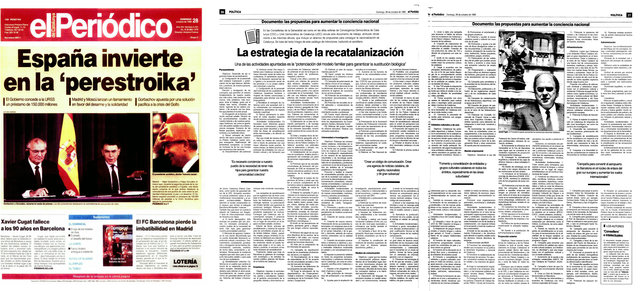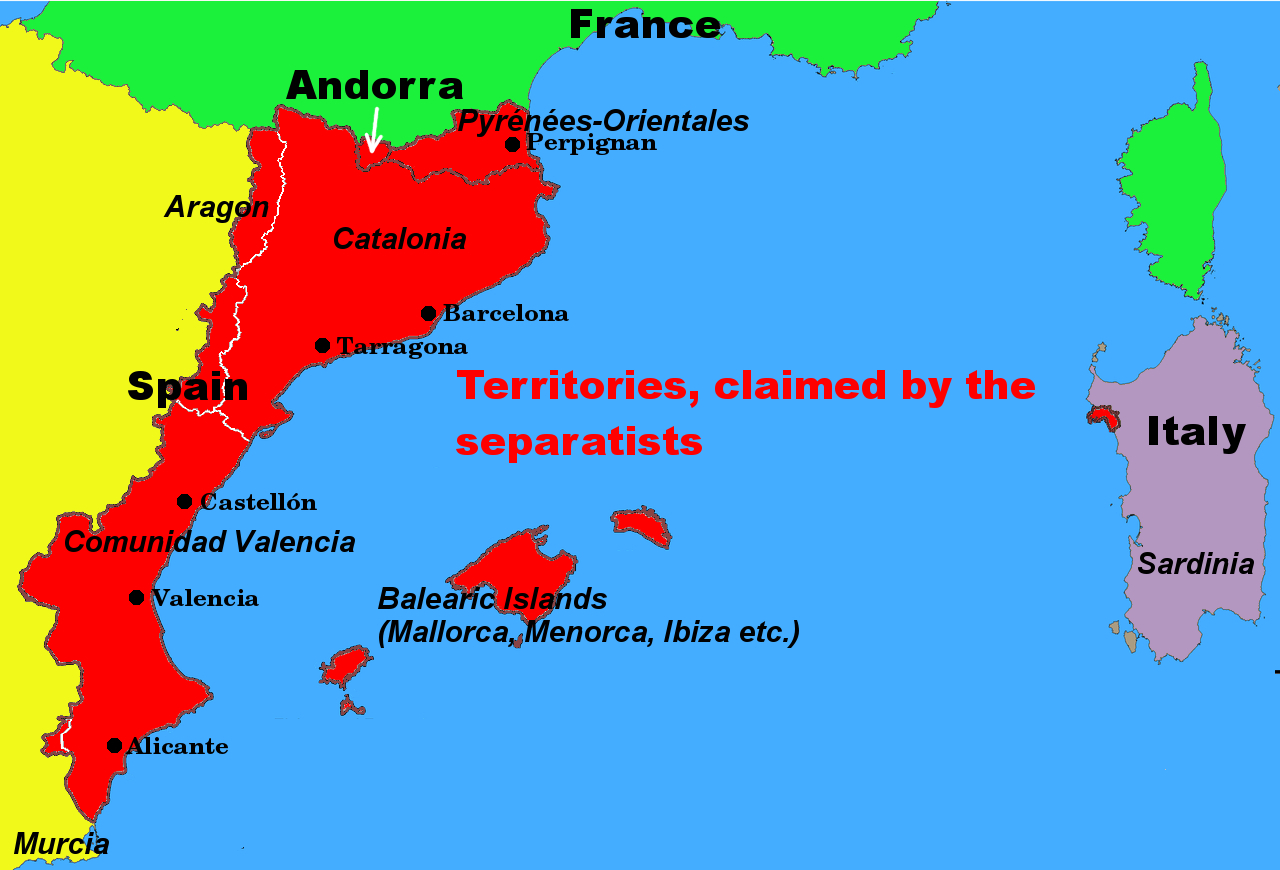Resistance from all sides
Who wants the Ley Celaà?
December 2, 2020
As announced, the so-called Ley Celaá has passed through parliament and slowly more and more resistance is emerging. The German online magazine „NachDenkSeiten“ (reflection pages) has kindly published an article of mine with the headline: „Right and left demonstrations in Spain against the new education law“.
The NachDenkSeiten have been on the Internet for German readers since 2003. I have translated the text of this article into English.
The Spanish education system
In order to understand the background better, it is necessary to know the structure of the Spanish educational system. For the period 2018/19, a total of 28,531 schools were counted in Spain, of which only 19,112 are public schools. This means that almost exactly 1/3 of all schools are private. After all, there are 122 more schools than in 2017/18, but only 20 of them are public, the rest belongs to the private sector.
The peculiarity of the private education sector is that it is largely determined by the „concertadas“. The „concertadas“ in turn are almost all run by the Catholic Church, including Opus Dei. The „concertadas“ are co-financed to a not inconsiderable extent by the state, although this share depends on various conditions. The „concertadas“ closest to where I live charges 500 Euro/month/student from the parents, but lunch is included in this price.
Only a very small percentage of the private schools are really essentially independent of Spanish government support, which is why they usually charge a monthly fee of about 1,000 euros per student.
The attractiveness of the „concertadas“
The will of many parents to raise this money for their children is mainly due to the fact that the public schools are partly in a sad state. Container buildings like on a construction site are not uncommon. The level of education is also seen as critical, not least because, similar to German conditions, immigrant populations in corresponding neighborhoods, where knowledge of the national language is often lacking, have a say in determining the level of education. The extent to which religious reasons play a role in sending children to the „concertadas“ is unclear.
Although private schools are officially subject to the education laws, the law does allow them a certain degree of flexibility in maintaining instruction in Spanish.
The use of the common languages in reality
The jungle of Spanish laws and court decisions usually requires that in areas with a regional language, at least 25% of classes must be taught in Spanish and in the respective regional language. But this is theory.
In Catalonia, some public schools no longer teach Spanish at all, and in many schools Catalan is the sole vernicular. In this context, one speaks of immersion, which means practically immersion in the language. In this way, the Catalan administration ignores the demand of the highest Spanish court, according to which at least 25% of the lessons must be in Spanish. When the demand for Spanish is given in, this is often done by teaching sports, music and mathematics in Spanish, subjects that are rather irrelevant for language training.
The changes introduced by the Ley Celaà
The Ley Celaà, which has now been passed, cuts funds for private schools and enacts regulations on the obligation of the student's local proximity to the school center.
Religious instruction is to be abolished or the grading is no longer to be included in the overall grade.
The Spanish language will be stripped of its status as a vernicular and this will give the supporters of the separatists, whether in Catalonia, Valencia, the Balearic Islands or Galicia, the opportunity to increase the language imposition for the regional language and ban Spanish completely or ever more from public schools.
The motives for the various opposition parties
The Spanish right-wing parties complain about all three aspects of the Ley Celaà. The reduction of funds leads to educational equality at a low level. The Catholic Church wants to keep the influence of religion on education. All Spaniards must be given a minimum knowledge of the Spanish language.
The weight of left-wing criticism lies essentially in the further marginalization of the Spanish language.
In a statement to the press agency EFE, Javier Marin, vice president of the Sociedad Civil Catalan (Catalan Civil Society) and one of the spokespersons of the nine left-wing associations, said they wanted to show that not only the right is against the government's education project, but also the left because of the rejection of the Spanish language. He hopes that this first mobilization against the Celaá law in Catalonia will give way to more massive mobilizations in the coming weeks.
Regarding the importance of the language of instruction, it must be stressed that in all Spanish areas with regional languages, the mother tongue of the majority of the inhabitants is Spanish. According to a census in 2013, 46.53% of Catalans declared Spanish as their mother tongue, 37.26% mentioned Catalan and 11.95% mentioned both languages. There, almost half of all children have to learn the regional language that is foreign to them and it is difficult for parents to help them with their schoolwork.
To escape the language dispute, the non-party organization „Hablamos Español“ was founded 3 years ago. It demanded that the parents and not the parties should decide on the vernicular for the lessons. In 2019, over 500,000 signatures were collected for these demands and handed over to the government. This petition was rejected on formal grounds and the Corona restrictions made it impossible to collect signatures again.
What would contribute to the resolution of the conflict?
More money into the system of public schools so that they can significantly increase the level of education and open up the possibility of providing lessons for students in the language their parents want.
But this is not possible with the budget that the parties have now voted for. Over 9 billion euros will be allocated to the Ministry of Defense, with only a „slight“ increase of 400 million or 4.7%.
Unfortunately I have not yet been able to find figures for education in the budget that has now been passed. But I fear nothing good. From 2012 to 2017 the cutback was 3.1%, as you could read in September this year.
It should be noted that the „concertada“ to which Minister Celaá sent her daughters is also rebelling against the law. But with the minister's salary, one could easily send any grandchildren to a „concertada“, even with reduced state funding. This reminds one somehow of the German former minister Schwesig. „Preach water and drink wine,“ is the popular saying.
Among the leftist organizations calling for the demonstration on December 2 are
Partido Feminista,
Centro Izquierda de España,
Alternativa Ciudadana Progresista,
la Asamblea Social de la Izquierda de Cataluña,
Unidos Sí,
Izquierda en Positivo,
Somos España y Partido Socialista del Trabajo.
| | | | Click here to subscribe or cancel your subscription |
Myths and deceptions of Catalan nationalism

Here you'll find the translation
The strategy of recatalanization
 1980 the Spanish journal "El Periodico" published a secret document about the strategy of the Catalan government. It shows in a frightening way the actual spiritual world of the separatist leaders.
1980 the Spanish journal "El Periodico" published a secret document about the strategy of the Catalan government. It shows in a frightening way the actual spiritual world of the separatist leaders.Now it is available in english translation.
Pancatalanism
the separatist's imperial claim
 The Catalan government exports the conflict into communities with Catalan population, supporting all efforts of the separatists including financial means to destroy Spain.
The Catalan government exports the conflict into communities with Catalan population, supporting all efforts of the separatists including financial means to destroy Spain. An important tool is the establishment of a language dictatorship that is not afraid to use the same means as Franco.
Separatist indoctrination

Click here to read the study
Language imposition and democracy

An essay in 6 parts on the potentially violent effect of language imposition containing contributions from South Africa, Catalonia, Ukraine and France.
go to part 1
Publications
 The title says: "Catalonia, a conflict is exported. Insights of a migrant"
The title says: "Catalonia, a conflict is exported. Insights of a migrant"Sorry, up to now, this book is only available in German. However, drop us a line, if you are interested to learn more Contact.
